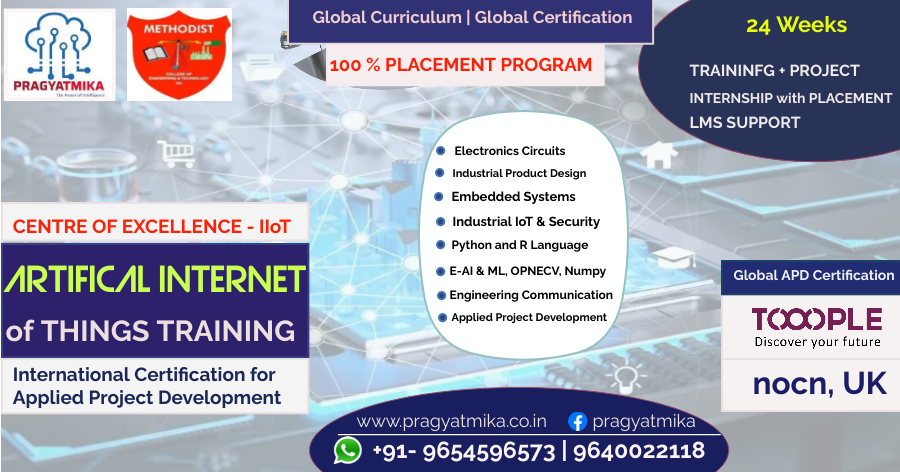100% PLACEMENT ORINETED INDUSTRIAL TRAINING PROGRAM FOR QUALIFIED CANDIDATES
Limited Seats for Registration. Admission on Merit Basis *
The Six months Industrial Training Program is aimed at giving practical exposure of electronics and its related components, Designing SMART Systems, Integrating Intelligence and Harnessing the latest advancements in Technology for a career growth to passing out engineering students. The Program is covered with every kind of practical exposure. The training program starts from very fundamental of Electronics covering to the Electronics Systems Design, Microcontrollers, Embedded Systems, Industrial IoT, IoT Security, Python Programming, AI &ML, Data Analytics, Final Year Projects Design, Engineering Communication, Internship Certification and Placement Assurance. *
All the modules are covered with hands on practical lessons utilizing the state-of-the-art lab of Centre of Excellence, industrial visits to the manufacturing and assembling plants, live projects of industry in the R&D lab of Center of Excellence, on the job training in our sister manufacturing and assembling plants.
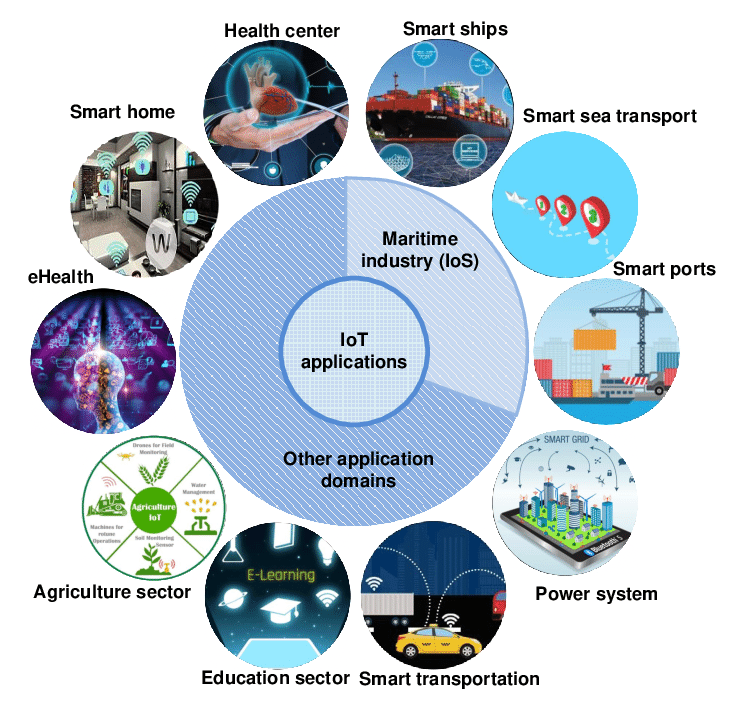
SMART ELECTRONICS – A Growth Opportunity
- The Electronics System Design & Manufacturing (ESDM) industry includes electronic hardware products and components relating to information technology (IT), office automation, telecom, consumer electronics, aviation, aerospace, defence, solar photovoltaic, nano electronics and medical electronics.
- According to the India Brand Equity Foundation (IBEF), the electronics manufacturing industry in India was valued at $75 billion in 2019-20 and is expected to reach $400 billion by 2025.
- In 2021, India announced its roughly $10 billion dollar Production-Linked Incentive (PLI) scheme to encourage semiconductor and display manufacturing in the country. Also, a Design-Linked Initiative (DLI) scheme to drive global and domestic investment related to design software, IP rights etc.
- India can reach $300 billion worth of electronics manufacturing and exports by 2025-26 if specific product segments with high potential for scale are shortlisted and catered to by way of incentives and policy measures, according to the Vision Document 2.0 prepared by the IT Ministry.
- The estimated demand of AI Professionals in India by 2024 will be approx. 1 Million.
Top Job Roles in AI INDUSTRY:
Artificial Intelligence (AI) is one of the fastest-growing fields of technology in the world, and India is no exception. As businesses and industries increasingly rely on AI to make data-driven decisions, the demand for AI experts is skyrocketing.
Here are the most in-demand job roles in AI,
AI Research Scientist: As an AI research scientist, you will be responsible for developing new algorithms, models, and architectures for machine learning.
Machine Learning Engineer: You will work closely with data scientists and software developers to create intelligent software applications.
Data Scientist: As a Data Scientist, you will be responsible for collecting, analyzing, and interpreting complex data sets to identify patterns and insights.
Natural Language Processing (NLP) Expert: You will be required to work on a wide range of projects, including speech recognition, sentiment analysis, and language translation.
Computer Vision Engineer: As a Computer vision engineer, you will develop algorithms that can interpret and analyze visual data, including images and videos. You will also get an opportunity to work on a wide range of projects, including facial recognition, object detection, and autonomous vehicles.
21st Century Skills You Need:
- Industrial Embedded Systems
- Internet of Things
- LAN & WAN Protocol
- Deep Learning
- Data Analytics
- Cloud Computing
- Natural Language Processing (NLP)
- Machine Learning
- Robotics
- Computer Vision
- Neural Networks
- Predictive Analytics
- Reinforcement Learning
Why Our Curriculum?

Specialized Industry Ready Curriculum:
With a team of decades of Industry experience and Global services Delivery practices we always keep updated with the latest of domain requirements and bring you also on the same platform through our continued delivery mechanism.
Unique Learning Experience:
With our specially crafted curriculum and Continued Support Mechanism We make your experience of learning completely unique. The program gives you a blend of Learning at your own Place , Learn at your own pace, LIVE Faculty Interactions, Remote & LIVE Hands ON facilities, Real world Hardware access and Expert Mentoring Support.
International Collaborations and Recognitions:
With our International collaborations for Industrial Training , Applied Project Developments , Mentoring , We prepare you with global standards and giving access to our global community of growth.
Key Highlights
- Instructor Led LIVE Sessions
- Hands On Experience on Hardware and Software
- Electronics Systems Design Hands ON.
- Mentoring Support Post Training
- PRAGYATMIKA VIP Network Access for Industry Mentorship
- Masterclasses, Design House Interaction Sessions
- LMS Access for Video Library, E-Notes, Research Papers, Code Snippet access
- LIVE Chat Support
- Bonus Sessions on Communications and Language.
- Unlimited Hardware Access for Practical’s.
- Global Contents and Delivery Mechanism
- Convenient Batch Timings .
- Vendor Network Access to build your supply line.
- Continuous Assessment and Global certification.
- Rewards for Learning Performance
The Admission Process:
- The Program is crafted for Passing Out Batch in 2024 and Passout Batch in 2023 ECE, EEE , CS Department.
- The selection process will be conducted for selection of candidates.
- Top 40 Candidates will be selected for AIoT Program under CENTRE of EXCELLENCE- IIoT .
- During Program, Candidates will be provided TRAINING with PROJECTS and INTERNSHIP.
- After 6 Months of Completion of Program, Candidates will be provided with Placement.
The Selection Process Structure :
- 60 Mins. Duration of MCQ Test with Skilling Test on Basic Electronics, C Language, Microprocessor, and Microcontrollers, Aptitude Test.
- Second Round of Personal Interview to access Interpersonal and Communication abilities.
Students Speak:
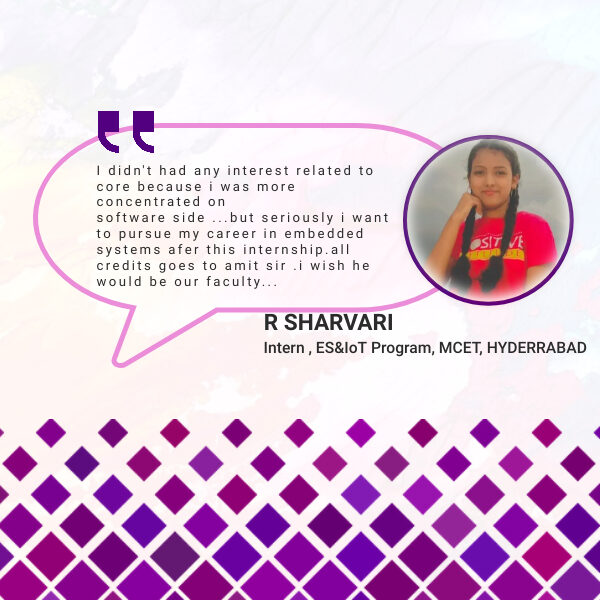
Course Structure
- Module: Fundamentals of Electronics
- Introduction to Fundamentals of Electronics.
- Introduction to fundamental rules of electricity.
- Introduction to various electronic components and their consideration in design of circuit.
- The fundamentals of circuit design and their considerations.
- The Analog circuit design.
- The different nature of Waves.
- Introduction to various measurement tools: Ammeter, Multimeter, Spectrum Analyzer, CRO, etc.
- Introduction to digital electronics.
- The digital circuit designs.
- Use of Breadboard / Bare PCB for designing, assembling, soldering, and mounting of components.
- Testing of an assembled circuit.
- Fundamentals of PCB design demonstration.
Module: Embedded Systems and Robotics
- Introduction to Microprocessor and Microcontroller 8051/PIC/AVR and their architecture and difference in them.
- Introduction to MPLAB IDE for Microchip’s PIC Microcontroller.
- Introduction to Keil compiler for AVR and 8051.
- The Embedded C Language.
- Interfacing with Output devices like LEDs, Relays, Buzzer, Optocouplers and writing programme for them in C Language.
- Interfacing with input device like Switch and writing programme for it.
- Interacting with PIC internal Timers and Counter Peripherals.
- Handling the Interrupt from different internal and external sources to microcontrollers and writing a perfect ISR (Interrupt Service Routines).
- Interfacing with seven segment LED devices.
- Interfacing with 16*2 LCD Display modules.
- Interfacing with MATRIX keyboard.
- Interacting and writing program for PIC internal ADC (Analog – to – Digital conversion) module.
- Interacting and writing program for PIC internal PWM (Pulse width Modulation) Module.
- Understanding of mixing C and ASSEMBLY Language.
- Interfacing with Motors like DC Motors, Stepper Motor with Microcontroller.
- Introduction to differential drive in ROBOT and control of the robot.
- Introduction to various sensing mechanism like IR, Temperature, Humidity, Object, Line sensor.
Module: ADVANCED EMBEDDED SYSTEMS
- Interfacing with PIC Internal Memory and writing program to access it.
- The serial protocol USART and writing program to communicate with PC and other devices.
- The I2C serial protocol and writing program to access an external memory device.
- The I2C serial protocol and writing program to access a RTC (Real Time Clock) device.
- The SPI serial protocol and writing program to access serial display devices.
- The DATA Acquisition Systems and writing program for Data acquisition.
- Introduction to handling a wireless module with PIC Microcontroller and writing program for it.
Electronics Circuit Design Techniques
- Rules of Electricity
- Electronics Components and Selection
- Analog and Digital Circuits
- Breadboard, PCB Assembly, Testing
- Industrial Measurement Tools
- Simulation and Emulation of Circuits
- Circuit Design Standards.
Module : IIoT Systems Design
- Introduction to 32 Bit ARM Controllers and Dual Core Microcontrollers
- Interfacing of Sensors with Systems
- IoT Communication Protocol: WiFi, MQTT, REST, COAP
- IoT Analytics and Dashboard
- Communicating Data to Cloud
- Data Management, Storage and Analysis in Cloud Environment.
Module: IoT PROTOCOLS
- Wifi, BLE, Zigbee, MiWi.
- LPWAN Architecture
- HAN and WAN Architecture
- SMART Factory Networking Protocols
- MQTT Protocol, HTTP Protocol, REST API
Module: Python and Artificial Intelligence
- Basics of Python
- The Data Types, Structure
- Exception and Error Handling
- Functions – Standard and User Defined
- File Handling
- Web Scraping
- Computer Vision
- Artificial Neural Network
- Datasets and Training Models
- Heuristic Learning
- Predictive Analysis
- Machine Health Monitoring and Performance Prediction
Module: Machine Learning
- Importance of Machine Learning
- Training Methodologies
- NLP and its use cases
- Linear Regression and KNN
- Model Optimization
Module: Power BI and Data Analytics
- IoT Device Data Storage and Cleaning
- SQL for Data Analytics
- Data Processing using Python – Cleaning, Wrangling and Visualization
- Numpy and Pandas
- Charts and Graphs for IoT Dashboard
- POWER BI Tool for Data Analytics of IoT Dashboard
Module: INTERPERSONAL AND ORGANIZATIONAL COMMUNICATION
- Meaning of Communication
- Importance of an effective communication and measures of it.
- The organizational communication.
- Utilizing the various methods of organizational communication.
- Skills in Organizational behavior.
- Effective listening skills.
Module: PROBLEM SOLVING SKILLS AND CONFIDENCE BULIDING
- How to develop positive attitude.
- How to take a problem to solve it.
- How to develop innovative thinking
- Understanding the needs of your clients/customers.
Module: INTERVIEW SKILLS
- Technical Interview Skills
- Managerial Interview Skills
- Puzzle problem interview skills
- Communication and Dress sense in the interview
- Behaviors during the interview.
Project:
Participants have to complete a real Application Level Design and Modelling Project as a part of final evaluation and a necessary criteria for award of program certification.
Career Opportunities:
- PRAGYATMIKA certificate is a highly recognized certificate in Industry Domain.
- Widely accepted in any Microelectronics Industry.
- Our programs are approved and validated by the industry with a unique verification code
- Networking and Idea sharing platform through PRAGYATMIKA VIP Network.
- Opportunity to interact with industry experts and speakers through communication Network
- Global Certification and Skill Assessment Platform (Optional)
- Global Placements in Core Electronics companies.
- LIVE Industrial Project opportunities as Internship.
- 100% Placement Assurance for Qualified Selected Candidates.

Need More Information
TOOPLE – NOCN(UK) GLOBAL APD CERTIFICATION
NOCN(UK) an International Qualifications regulatory has been creating opportunities through learning and skills development for over 30 years.
TOOOPLE’s endorsed NOCN(UK) Applied Project Development frameworks lead to international certifications that bring standardization to project mentoring and development in higher educational institutions, professional training organizations and Industry.
The frameworks and methods inspires :
- Analytical thinking.
- Collaborative Problem Solving
- Develop Critically Considered Approaches to resolving challenges
which improves readiness for the current industrial environment. The INTERNATIONAL QUALIFICATION certification affords students and young professionals opportunities for professional readiness, talent development and professional growth or explorations to support seeking a career change at both foundation and advanced level.
NOCN(UK) APD Certifications are mapped to the skills earned during the Program Training and Project being completed as a part of APD Certification. Profiles mapped with curated skills are made available to prospective global employers in Li Ion Battery Domain.
TOOOPLE Endorsed NOCN(UK) APD Certification facilitates you with :
- INTERNATIONAL Qualifications Certification in Li Ion Domain
- My Credentials – A specialized platform to curate the skills and share with prospective employers.
- JOB MATCH based on your Skills
- TOOOPLE START SMART
- Continued Assessment and Projects
- International Job Opportunities in Li Ion and BMS Domain
To Know More about PRAGYATMIKA Global Dual Certification : Visit Here

Our Support Strategy:
- Industry Qualified Mentors and continually updated Curriculum.
- Freedom of Learning from Anywhere , Anytime with guided Support
- Access to exclusive Wiki on Li Ion, LIVE Chat Support from Faculty and Design House Interactions.
- Personalized Expert suggestions, Feedback and solutions understanding your industry scenario and requirements.
- PRAGYATMIKA Community Support and VIP Network Access for Latest Trends in Industry, Technology Webinars, Peer Support, Industry Insights and knowledge Sharing.
- Expert Mentoring and Support on Short term and Long Term Career/ Entrepreneurial Goals.
- International Certifications for access to Overseas career opportunities.
- Handy Tips and Risk Analysis before starting your own venture.
Special Advantages with PRAGYATMIKA INDUSTRIAL TRAINING Program :
- All the Modules are hands on in nature. Much of the practical industrial exposure is given.
- 100% placement assurance* to the selected candidate after completion of training. AIoT Program is aimed at preparing the students for industry. We provide 100% placement assurance* to the selected candidates after training based on certain criteria purely on merit basis.
- On the job Training & Industry Visits are provided to the students during the training.
- Live projects of Industry are executed during the training at PRAGYATMIKA. Every student gets chance to work on projects.
- VIP Network Access Avail PRAGYATMIKA VIP Network for Guidance and Mentoring Post Training with Real Life Industry Experts.
Request More Details For Registration
Companies in AI & IoT Domain and Recruitment Opportunities:
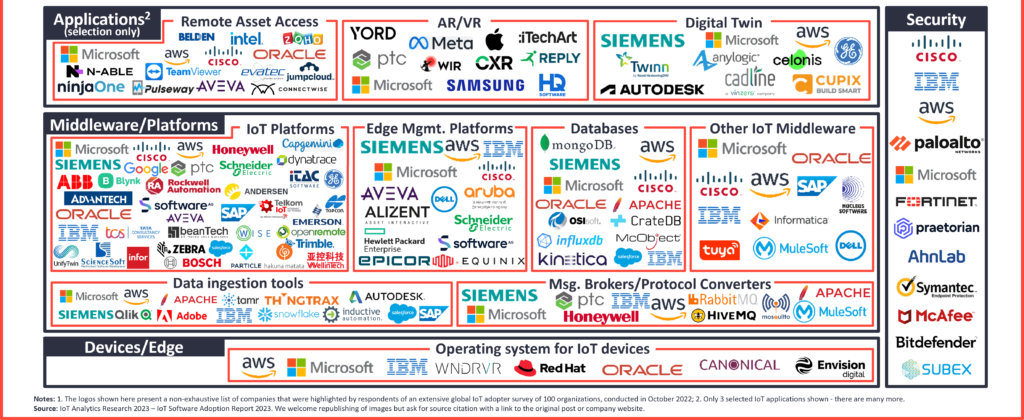
More Testimonials from our Learners
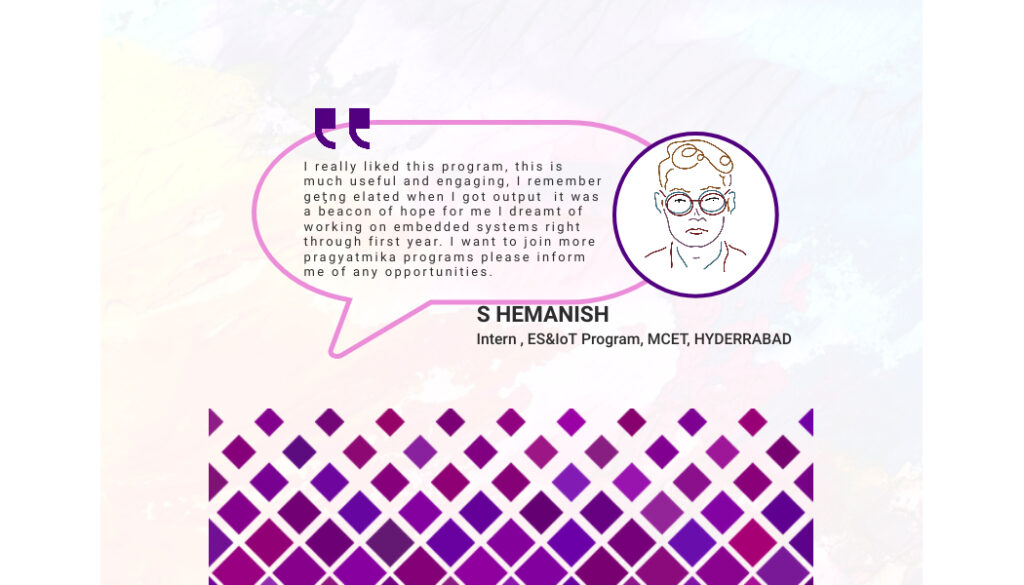

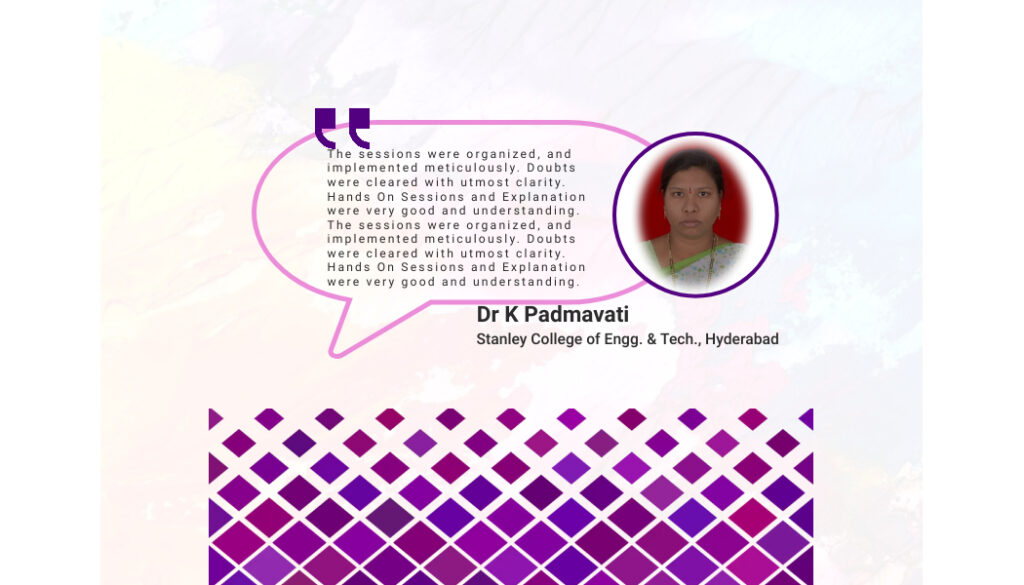
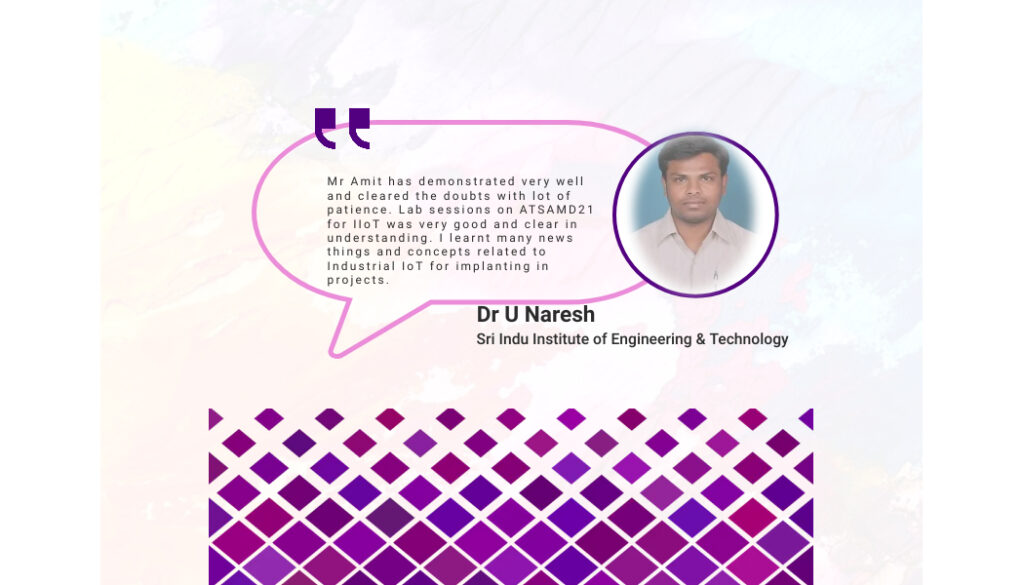
Disclaimer:
PRAGYATMIKA holds the right to make the modification/change/cancel the program contents, program trainers, event dates or events anytime without prior notification or information.


